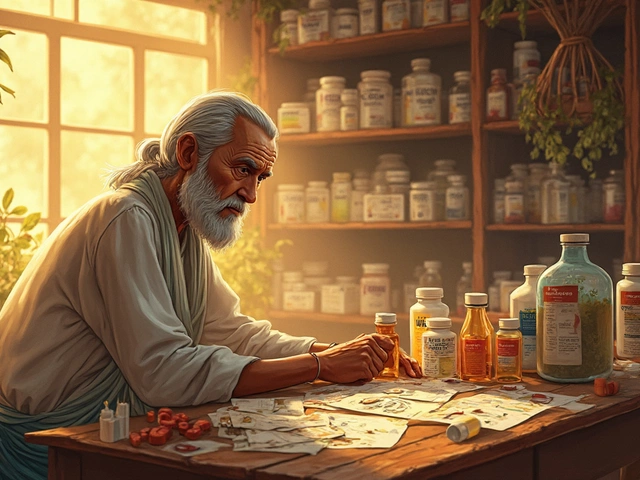Could cancer be hiding in your body for years without you knowing? Here’s what science says about how long you can live with undetected cancer and what signs to watch for.
Read MoreLiving with Cancer: Real‑World Tips You Can Use Today
Finding out you have cancer flips your world upside down. You might feel scared, angry, or even numb. The good news is that you don’t have to navigate this alone. Small, sensible steps can make a huge difference in how you feel day‑to‑day.
First, get a clear picture of your treatment plan. Talk to your oncologist about what medicines, surgeries, or radiation are on the table. Write down the schedule, side‑effects you might see, and what to call if something feels wrong. Having this roadmap stops the guesswork and gives you a sense of control.
Managing Treatment Side Effects
Chemo, radiation, and surgery each bring their own set of aches, nausea, or fatigue. The trick is to attack each symptom before it takes over. For nausea, keep ginger tea, crackers, or a small snack handy right before treatment. If fatigue hits, break tasks into short bursts—10 minutes of activity, then a rest, repeat. Hydration is a game‑changer; aim for eight glasses a day, and add a pinch of salt if you’re sweating a lot.
Skin changes? Use a gentle, fragrance‑free moisturizer after each shower. Hair loss can feel like a big loss; a soft hat, scarf, or wig lets you choose how you look. Remember, side effects often ease after the first few cycles, so give yourself credit for getting through the tough part.
Building a Support Network
Talking to friends or family about what you’re going through can feel awkward, but sharing lightens the load. Let them know how they can help—maybe a grocery run, a ride to the hospital, or just a phone call. If you prefer anonymity, online groups for cancer patients are full of folks who get it. You’ll pick up practical hacks and feel less isolated.
Professional help matters, too. A counselor or therapist trained in cancer care can teach you coping tools like deep breathing or guided imagery. Many hospitals offer free support sessions; ask your care team about them.
Nutrition plays a silent but powerful role. Aim for protein‑rich foods—eggs, beans, lean meat—to repair tissue. Colorful fruits and veggies give antioxidants that help your body fight back. If you lose appetite, try small, frequent meals instead of three big ones.
Staying active, even a short walk, boosts mood and reduces fatigue. Listen to your body; if a full walk feels too much, pace yourself with a 5‑minute stroll and rest. Over time, you’ll notice more energy and better sleep.
Finally, give yourself permission to feel whatever comes up. It’s okay to have good days and bad days. Celebrate the small wins—finishing a chapter, cooking a meal, or simply getting out of bed on a tough morning. Those moments add up and keep you moving forward.
Living with cancer isn’t a one‑size‑fits‑all journey, but with the right tools, you can stay active, informed, and emotionally steady. Keep this page handy, refer back when you need a quick reminder, and remember that every step you take, no matter how small, is progress toward a better tomorrow.





